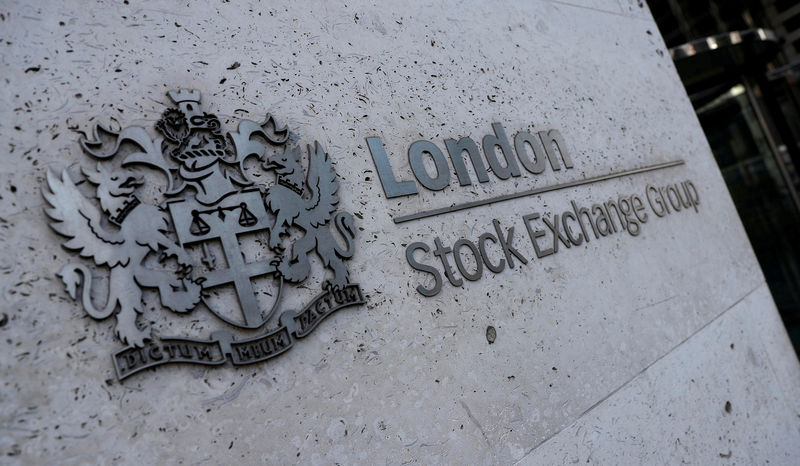By Susan Mathew and Sagarika Jaisinghani
(Reuters) - European shares fell in early trading on Tuesday, dragged down by a sell-off in defensive sectors and on disappointing China data that stoked recession worries ahead of the European Central Bank's monetary policy meeting later this week.
The pan-European stocks benchmark index STOXX 600 (STOXX) fell 0.6% by 0840 GMT with all major country indices in the red. The index was on track to post its worst session in more than two weeks.
Euro zone stocks (STOXXE) also weakened as investors focused on the ECB's meeting on Thursday, when it is widely expected to cut its deposit rate for the first time since 2016 and restart an asset purchase program.
David Madden, analyst at CMC Markets in London, said he expected a subdued trading week in Europe. "We're going to have traders sitting on their hands between now and Thursday when the ECB (make) their announcement."
Defensive sectors such as healthcare (SXDP), utilities (SX6P) and food and beverages (SX3P) were among the biggest losers. The stocks had been in high demand over the past three months amid trade and growth uncertainties.
European banks (SX7P) posted the largest increase, led by London banks Barclays (L:BARC), Standard Chartered Bank (L:STAN) and RBS (L:RBS). Swiss bank UBS Group (S:UBSG) rose 2% after Kepler Cheuvreux upgraded the stock to "buy".
Euro zone banks were trading flat after rising 1.3% earlier in the session. They have risen 9% in the past five days in one of their strongest rallies since April 2017.
Expectations of a stimulus from global central banks were strengthened on Tuesday after weak factory data from China showed prices shrunk in August at their fastest pace in three years.
Technology stocks (SX8P), a key growth sector, fell 1.3%, tracking their U.S. counterparts lower. (N)
On the corporate side, JD Sports (L:JD) topped the STOXX 600 after it reported higher first-half pretax profit, helped by more demand for gym apparel and premium branded fashion.

Meanwhile, German bund yields hit a one-month high following a Reuters report that Europe's biggest economy is considering a "shadow budget" to allow the government to circumvent its strict national debt rules.